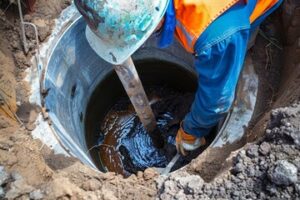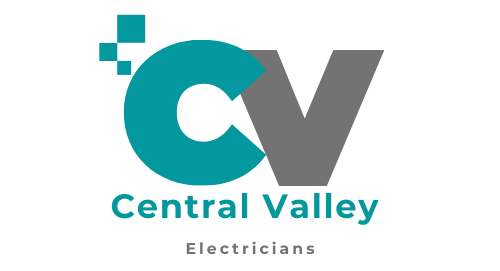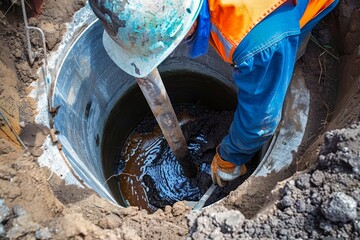Septic Pumping prevents clogs and leaks, eliminates foul odors, helps avoid costly property damage, and promotes a healthy living environment. When the septic tank storage system works properly, solid waste items sink to the bottom while lighter waste rises to the surface.
Ignoring septic tank pumping can lead to sewage backups inside the home and contaminated groundwater or nearby bodies of water. To keep your septic tank functioning at peak performance, consider limiting the amount of solid waste in your household. Contact Septic Pumping Fresno for professional help.
When one of your toilets becomes clogged, it is not only annoying and inconvenient for you but can also damage your septic system and cause serious problems. It is important to take precautions and do what you can to prevent clogged toilets as much as possible. This way, you can avoid costly repairs and save money in the long run.
Septic systems are designed to treat wastewater from your home and separate solid waste from the liquid waste, allowing it to be dispersed into the soil. The system is a series of tanks and perforated pipes that collect the waste from your home, including the toilets. The waste moves into the septic tank where the solids are separated from the water and microorganisms break it down. From there, the wastewater moves into the drainfield, which is a network of perforated pipe that disperses the water and solids into the ground.
A clogged toilet can be a sign that there is a problem with your septic system and that it needs to be pumped. When your septic system isn’t properly pumped, it can lead to backups in the home and sewage spilling into the yard. The best way to avoid these problems is to have your septic tank pumped regularly.
It is also important to prevent clogs by only flushing toilet paper and human waste. You should also avoid using any drain cleaners that contain harsh chemicals, as these can damage your septic system and cause clogs. Instead, try to reduce your water usage by installing water-saving shower heads and faucets, and by fixing any leaky faucets or fixtures.
Clogged drainfields are a sign that your septic system is failing or reaching its end of life. This can occur when too much solid waste makes it into the drainfield, where it builds up and causes a clog. When this happens, you may notice that your toilets aren’t draining as quickly as usual and odors may be present around the home.
To help prevent this, keep a watchful eye on your water usage and install drain traps to catch hair, soap scum, and other debris that could get into your pipes and septic system. You should also avoid flushing anything other than toilet paper and human waste, and install a drain screen in each of your sinks to keep small objects out of the drains.
Only Use Toilet Paper
While many people treat their toilets like trash bins, doing so puts a strain on their septic systems. The system is only designed to handle bodily waste, so putting any other items down the drains can overburden it, and potentially flood the drain field. In addition, cleaning products and other household chemicals can kill off the bacteria that keep the septic system healthy.
The best way to help your septic system is by only flushing toilet paper. Although multi-ply papers might feel luxuriously soft, they can actually damage the septic tank. The extra layers interfere with the natural break-down of waste, leading to clogs and other problems. Single-ply options, on the other hand, are a better choice for septic tanks. Look for a brand that offers details on their commitment to septic-friendly practices, and choose a product that’s NSF-certified.
In addition, avoid scented toilet paper, which can contain ingredients that disrupt the natural bacterial balance in your septic tank. Also, don’t be tempted to flush coffee grounds or food scraps down the toilet. These can wreak havoc on the system, and even cause blockages.
Be sure to keep the lid on your septic tank closed as much as possible, and make sure that you don’t have any items laying around on top of it. It is also important to ensure that the septic tank area stays clear, so the septic technician can work without interference. Remove toys, furniture, and other items from the path that leads to the tank.
Finally, be aware of the amount of water your household uses on a daily basis. This can affect how quickly the septic tank fills up, and can indicate if you have a leak or problem with one of the toilets. Try to limit the number of water-consuming activities, such as running laundry, dishwashers, or showers, to lessen the impact on your septic system. It’s also wise to invest in a water-saving toilet, which can cut your household water usage by up to 200 gallons per day. This can significantly reduce the amount of time your septic tank needs to be pumped.
Avoid Overfilling Your Tank
Septic tank overflow is a harrowing experience. Aside from being unable to use the toilets, you could end up with wastewater backflow into your home and sewage leaking out onto your property. Fortunately, there are several things you can do to avoid this issue and keep your septic system running smoothly.
The best way to prevent overflow is to maintain routine septic pumping and inspections. This will help ensure that sludge is not building up in the tank, and it will also allow for any problems to be addressed quickly and efficiently.
You should also limit your water usage to reduce the amount of waste entering your septic tank and system. This means taking shorter showers, limiting dishwasher and laundry usage, and using water-saving toilets. It is also a good idea to conserve water as much as possible by installing drought-tolerant landscaping and using cisterns for outdoor irrigation.
It is also a good idea to plant trees far from your septic tank and drain field, as their roots can penetrate the tanks and clog pipes. Additionally, it is important to limit the amount of non-biodegradable materials that are flushed. This can include wet wipes, paper towels, and fats and oils.
If you notice that your septic tank is overflowing, it is important to contact a professional right away. The sooner you get it pumped, the less damage will be caused to your property and the surrounding environment. A professional will be able to inspect your tank and determine the cause of the problem, whether it is a clog or overflow.
When you hire a septic tank service, make sure to provide them with all relevant information about your septic system. This includes the size of your tank, where it is located, and when it was last pumped. Providing this information will help the septic tank technician understand your specific situation and tailor their services accordingly.
Regular septic tank pumping is one of the best ways to avoid costly septic tank repairs and overflows. By taking steps to avoid blockages, reducing water usage, and maintaining routine septic tank pumping and inspections, you can avoid many of the scariest septic system problems.
Avoid Running Too Many Toilets
Using too much water in a short period of time overloads your septic system, causing solid waste and sludge to build up faster than it can drain. This can cause a variety of problems, including foul odors both inside and outside your home. You can help prevent this by conserving water, fixing leaky faucets and showerheads, and spreading out your laundry day to avoid putting too much strain on the absorption field.
Educating your family and guests on what they can and cannot flush is another way to keep your septic tank healthy. Items that don’t break down, like baby wipes, paper towels, sanitary products, and “flushable” wipes, can all damage your septic system. Make sure there are trashcans available in each bathroom, and remind family and guests to only flush toilet paper and wastewater.
Many common pump issues, such as clogs and electrical problems, can be prevented with regular maintenance. Make sure the septic tank and leach field are free of debris, and that the pump is working correctly. A well-maintained septic system is an asset to your property, and it can also make it more appealing to potential buyers down the road.
If you have a 2-tank or 2-compartment septic tank, pumping the first tank every 3 to 5 years is important, and then pump the second tank at least every other year. If you have a 3-tank or larger system, you may need to have the tanks pumped more frequently.
Keeping track of your septic tank’s contents and scheduling routine pumpings will prevent overflowing, which can damage your septic system and the surrounding soil. If you are concerned about your septic system, give a call and we can schedule an inspection to determine how often your septic tank needs to be pumped. We can also perform cleanings and provide other preventative services to ensure your septic tank is functioning properly and efficiently. We are a local, family-owned and operated company that is dedicated to providing expert service for residential and commercial properties. We offer septic tank cleaning, repairs and pumping for all types of systems, so contact us today to learn more about how we can help you!

